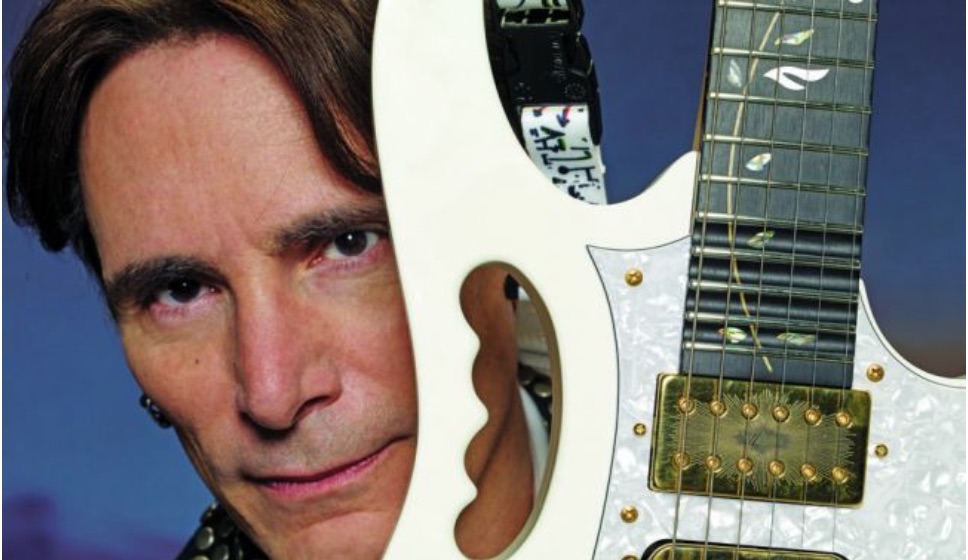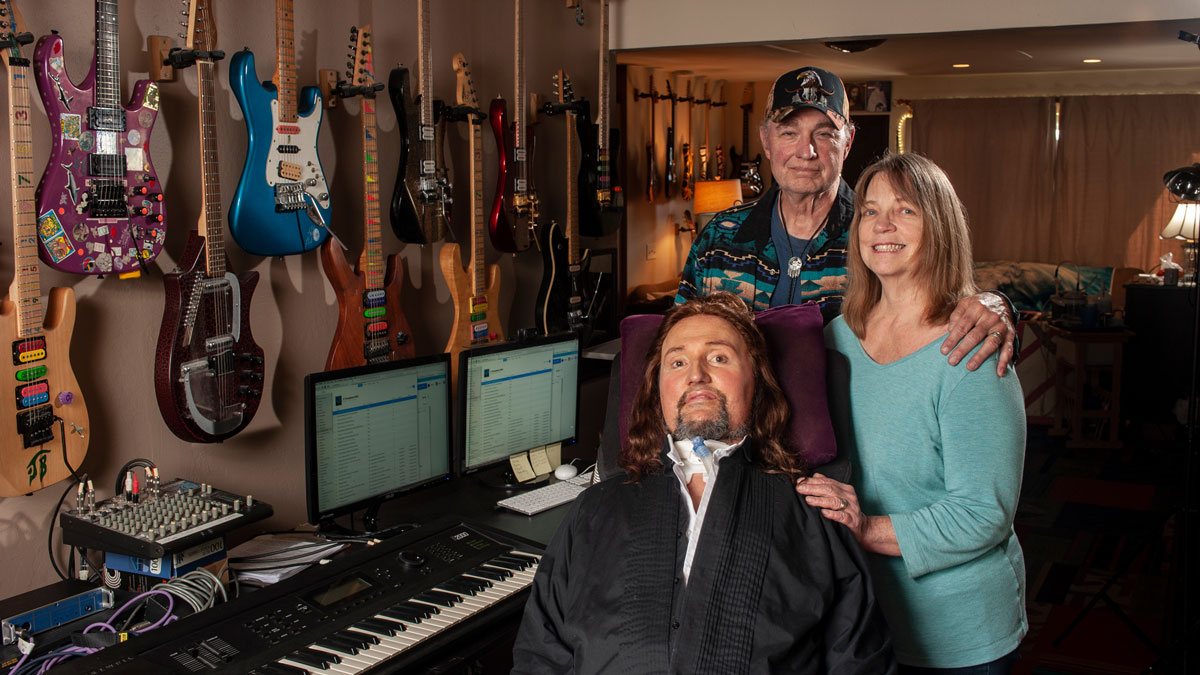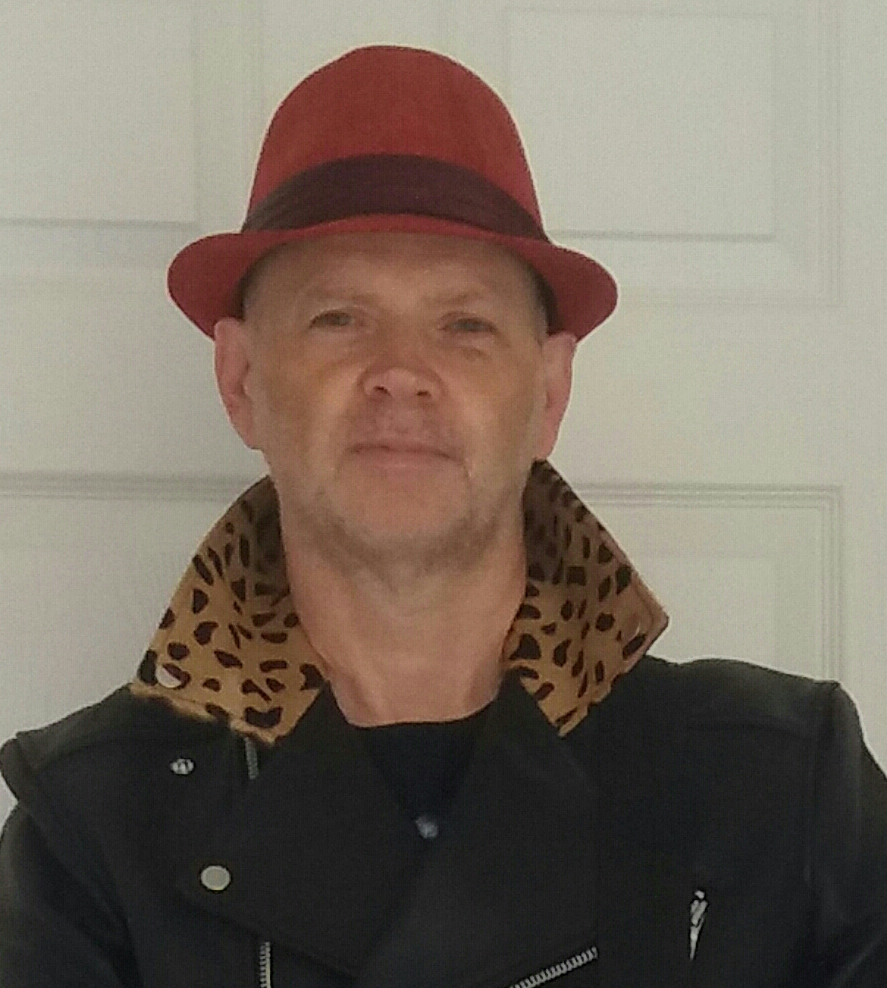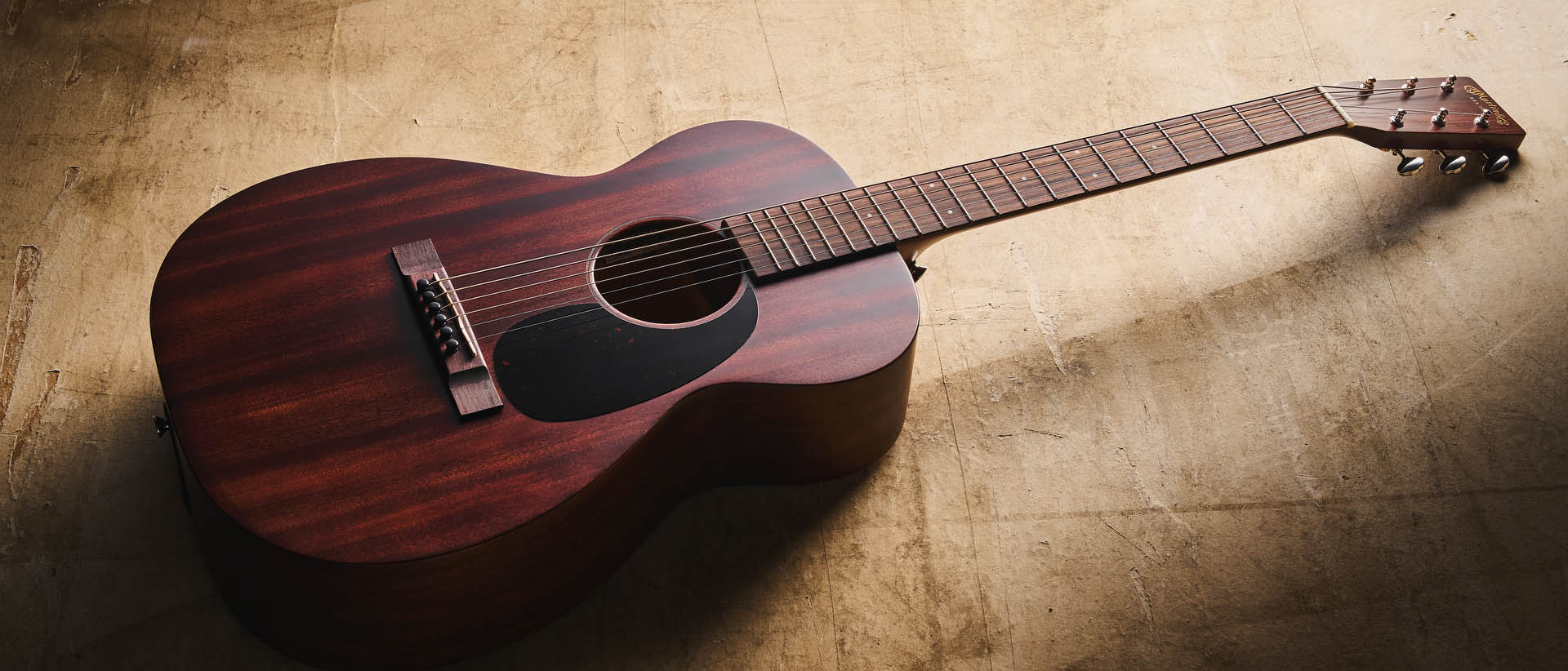Jason Becker: "My heroes understand how devastating it would feel to not be able to play their guitar anymore"
The shred survivor details how he assembled some of the world's greatest guitarists for Triumphant Hearts

Jason Becker’s story is one that cannot fail to move you. At age 20, he was on top of the world, playing on David Lee Roth’s 1991 album, A Little Ain’t Enough, as Steve Vai’s replacement. He’d already become one of the hottest names in shred, thanks to his work in Cacophony with Marty Friedman, releasing Speed Metal Symphony in 1987 and Go Off! in 1988.
But disaster was about to strike. Not long after he felt some pain in his leg, Becker’s health rapidly declined. He had to switch to super-light-gauge strings to complete the Roth album, and his condition deteriorated so quickly that he was soon confined to a wheelchair.
He was diagnosed with Amyotrophic Lateral Sclerosis (ALS), also known as Lou Gehrig’s disease. Eventually, his condition degenerated to the point that he was only able to communicate via his eyes, using a system his father developed for him.
With my melodies, it was awesome to hear these players' unique phrasing
For the average guitarist reading this, it is unthinkable to miss even a few days of playing. Imagine the trauma of never being able to play again - and that being the very least of your worries.
Becker has battled numerous complications and crises; with a prognosis of maybe five years to live in 1989, 30 years later he is still fighting on. He has always been held in exceptionally high regard in the guitar community, and his new album, Triumphant Hearts, is testament to that, featuring a who’s who of some of the world's greatest guitarists, including the likes of Joe Satriani, Uli Jon Roth, Guthrie Govan and former Cacophony bandmate Marty Friedman.
In this candid conversation, Becker reveals how this enviable roster of guitar greats brought his vision to life and his six-string story from childhood to today.
Considering that you created the music for other musicians - and guitarists in particular - to play, do the fully realized finished recordings match up to your vision?
All the latest guitar news, interviews, lessons, reviews, deals and more, direct to your inbox!
"Yes, and usually they surpass my vision. There are sort of two different ways things happen on this album. Some players played the melodies that I wrote pretty close to exact, but with their feel, like on Triumphant Heart, Hold on to Love and Magic Woman. But, with a couple of songs, like River of Longing and Valley of Fire, I didn’t tell anyone what to play, I just told them to play what they felt. It surpassed my hopes.
"With my melodies, it was awesome to hear their unique phrasing. Uli [Jon Roth] wanted to stick to what I wrote very closely, but with his beautiful phrasing, it totally sounds natural for him. It sounds like he wrote it.
"I asked Marty [Friedman] to try one take with more space between each phrase on Triumphant Heart. He sent two takes, and I wound up picking his favorite. On River of Longing, I asked one player to try one more time, because it didn’t sound enough like him. With Valley of Fire, it was really tough because most of them sent a few solos. I didn’t want to bum anyone out by picking the wrong one."
Who is doing the bulk of the non-celebrity playing?
They're all celebrities to me. Each one added their own magic that I couldn’t have done even if I could move
"Hmm… I’m doing some of the playing on a few songs, and I sure don’t feel like a celebrity. Haha! Andrew Jay does the intro to Hold on to Love, and Daniele Gottardo does the rest of the guitar in that song.
"Funny, I was trying to get Jeff Beck or Eddie Van Halen for that song, but Daniele’s mom wrote to me asking if I could find a place for him on the new album. That melted me because that’s something my mom might do. Daniele had already recorded Glauco Bertagnin’s beautiful violin parts in Italy and I was already a fan of his and we are close friends, so it was the perfect choice.
"Dan Alvarez plays keyboards, Mike Bemesderfer does some flute, Javier Torres plays drums on We Are One, a 37-piece orchestra from Bulgaria plays on six of the pieces, Codany Holiday, Gary Rosenberg and Steve Knight, as well as the choir are the singers.
"They're all celebrities to me. Each one added their own magic that I couldn’t have done even if I could move - especially my co-producer, Dan Alvarez."
There’s a strong uplifting cinematic feel to many of the pieces. Is composing for film a direction you’d like to move into?
"Thank you! That is a nice compliment and, yes, I’d love to see my compositions in movies. That said, I don’t quite have the time or energy to get into doing a whole movie score, but I’d love it if a director used any of what I’ve already written. Maybe someone could use my themes.
"I love soundtracks to movies and am always touched by the music if it’s good. The music in some old Disney movies, like Pinocchio, Alice in Wonderland and Peter Pan really gets to me. As a kid, I loved Peter and the Wolf, and those Ennio Morricone themes are great.
"I love John Williams and my favorite movie is Jaws (along with Dumb and Dumber, Amadeus and Peter Jackson’s King Kong). The music is so powerful in those movies, as well as the Indiana Jones movies, Star Wars, etc.
"There is a movie called The Straight Story and the score blends so beautifully with the story. It always blows me away how much music adds to a movie and I have been inspired by the emotion and have tried to use that in my own music."
Hold on to Love has autobiographical lyrics. At times, they’re almost painful to listen to - although you seem to be in a great place. Where do you think that positivity comes from?
"I hear you, and that is really good to hear - that you felt the lyrics. When I first wrote them, it was way less hopeful; I was feeling pretty dark and down. I am mostly a positive person and I think I always have been.
"I had/have a good life, but I do get down sometimes. When that happens, my family and my friends always try to bring me back to the positive way of seeing things. It may take a while, depending on what kind of mood I’m in, or what kind of hell I might be going through health-wise, but I usually get back to a peaceful place.
"I understand the dark side of life, though. Life sure can be sad and scary, especially when you don’t feel the love."
Are you a spiritual person?
"I think I am. I want the world to be happy and at peace. It kills me that some people feel unloved and lonely. I can't stand it when people get bullied or feel ugly or worthless. I am such a sucker for love; to me, it feels like the reason we are here - to love and be happy. I want that for everyone on the planet.
"It sounds corny, but I guess that makes me a spiritual person. I try to be kind and make people feel good. I have plenty of ego, selfishness and anger, but I’m always trying to fix that in myself. It is constant work trying not to be a dick!"

"Contributing to Jason’s record was both uplifting and humbling. His unimaginable limitations have forced him into a creative state of mind that transcends mere guitar playing by offering a straight shot to his uniquely inspired inner ear, which then manifested the music on this record. I so much enjoyed contributing along with such other powerfully talented players. We all came together to help Jason’s inner visions to be real in the world, and they are lovely, and we are grateful."
What was the thinking behind the cover of Bob Dylan’s Blowin’ in the Wind? Are you a Dylan fan - or was it that particular song?
"I am a huge Dylan fan. He is the reason I wanted to become a musician. My parents and my uncle had Bob Dylan music going constantly when I was growing up. I always thought it was so deep and melodic and I loved his singing. I think Blowin’ in the Wind is just as relevant today as it was when he wrote it in the '60s.
"It got on the album because my friend, Gary Rosenberg, worked with Dan and recorded himself singing it and brought it over for me to hear, and he asked me to write a guitar solo for it. I fell in love with his beautiful version and begged him to let me put it on my album.
"I wrote the solo, which was performed by Jude Gold, and I love the way it turned out. It sort of hurts that Dylan was so important and meaningful to so many people, but now he’s a little forgotten. These days, I don’t hear much music that has impact or magic or soul or thought or heart."
Valley of Fire has been highlighted as the showcase lead-off track. Of course, it features a cast of shred legends, a bit like a Shrapnel 'who’s who'. It must be flattering to have so many great guitarists keen to participate on the album.
"It is great, and I am very touched - not only because they do it, but that they put so much heart into it. They are all so happy to help me make my music come alive. I am so grateful.
"These are some of my guitar heroes. I think they understand how devastating it would feel to not be able to play their guitar anymore. These artists have a lot of compassion. It is almost too much for me to take; it’s kind of overwhelming how wonderful guitar players are."
Was Valley of Fire always conceived of as a long, nine-minute track, or did it expand as more guitarists were recruited?
"I never thought about how long it would be, but you are right, it kept getting longer and longer. I said, 'Oh shit, do I have room for everyone!?'
Valley of Fire would have been way longer if everyone I had asked weren’t on tour or working on their own album!
"Hey, it would have been way longer if everyone I had asked weren’t on tour or working on their own album, like Eric Gales, Yngwie Malmsteen, George Lynch, John 5, Slash, Brian May, Eric Johnson, Brian Setzer and Steve Lukather."
How were the tracks determined for who would be the ideal guest? Did they get a few tracks to choose from or did you fit them into what your vision was?
"Good question. I started by asking a bunch of my favorite players to play on River of Longing. I got a lot of great but long solos. Trevor Rabin and the great John Scofield played over the whole song. I thought 'D’oh! It will be a whole album of River of Longing!' I actually considered that.
"That is when I decided to write Valley of Fire; the verses were half as long, so I could fit more guitar players. Funny, I asked Uli to play on Valley of Fire, but he said he would never play on something like that. I then sent him Magic Woman and he said, 'now, that is what I’m talking about!' For Valley of Fire I asked any player who I liked. It was more specialized for other songs."

Where did your own guitar tracks come from - did you have a lot of old stuff that was unreleased? Did you fit the new track around the piece that you had, or was it a case of thinking afterwards, ‘Hey, that piece from xxx might fit?’
"Yes, I have tons of old unreleased guitar recordings; most of it is never-heard songs or riffs. Two days after Prince passed, Dan Alvarez came over and I asked him to put down a funky beat at a certain tempo. We then went through my old recordings and found two different ones that were close to the tempo and swing that we could mess with. I then arranged and wrote around that.
"The first solo in Once Upon a Melody was an old four-track thing I had written as a possible part for the intro to the Cacophony song, Black Cat. We didn’t use it, and when I recently found it, I got excited and put it in Logic Pro, then wrote different chords over each note.
"The second solo was from the Cacophony album/song Go Off! It is my favorite solo of mine. Sometimes when I am writing a song, I think of something I did that I think might fit and try it out, but for Once Upon a Melody, I intentionally built a different kind of song around those solos. It was why I wrote the song.
"It sort of evolved into a story-type thing, thinking of my childhood and hanging out with my friends, my teenage guitar years, and my years of composing/song writing/arranging."
Taking Me Back and Tell Me No Lies, the two David Lee Roth outtakes, are great reminders of what has been an overlooked album. Were there vocal tracks ever laid down for them - if so, was there a problem regarding rights, or was there ever any notion of asking DLR to put down some vocals?
"Dave just recorded a rough scratch track on Taking Me Back, back in the day, which I love, but it wasn’t something he would want out there. I thought about asking him to record something new, but we haven’t spoken in many years, and I had so many other things to get done."
There’s a clip on YouTube which purports to be your audition demo for DLR playing Yankee Rose. Is that you? Assuming it was, how much time did you take woodshedding to get it so spot-on?
"It is me, and I also did Hot for Teacher and Skyscraper. Those three four-tracks were done in one night. I was already a fan of those songs, so I sort of knew how I would play them. It isn’t like I had to learn them out of the blue, is what I mean. All I had to do was put my own spin and feel on them."
The overall feel of the album is quite some way from the days of Cacophony - what do you think when you listen to the old stuff?
"I don't listen to the old stuff much, but when I do, I am always pretty happy with it. You know, the first album, Speed Metal Symphony, was mostly Marty’s vision. He was so kind to make me a big part of it. It was all so much fun. We constantly cracked up making that album.
"Same with Go Off! - but with that one, I was more of an equal with Marty. I had more ideas and Marty dug them. We weren’t into many guitar players at the time. We were totally focused on our own music and doing what we wanted, not thinking about how the world would take it. Mike Varney made that possible, as he totally believed in what we were doing."
What’s your daily regime musically? Obviously as a teenager you would have been making playing guitar your focus; are you still as driven as you must have been back then?
When I am working on an album or a song, yes, I am just as driven. But I don't have as many hours in a day as I used to before ALS
"When I am working on an album or a song, yes, I am just as driven. But, due to my unfortunate fate (haha!), I don't have as many hours in a day as I used to before ALS.
"My working hours are just a few each day, but I do spend them working on music (if I have a project going on) or other things related to music. So yeah, a lot less hours, but just as much focus.
"Hmm… actually, when I am working on a song, I do spend a lot of sleepless hours thinking about where I might take the piece next, so, maybe just as many hours, but it is different. I also don’t work every day."
Do you have a lot of material written for a future release?
"I have a lot of material, and I am sure I have enough for a future release, but for now, I just can't think about that. I need to take some time and let my caregivers relax, too. I will always have more stuff, but for now I just want to relax.
"It has taken years to create this album and it was a tremendous amount of work, energy, time, blood, sweat and tears. I went through a couple of bouts of pneumonia during the process, long torturous waiting periods, and now that it is finally done, I am ready for a break.
"Right now, I am helping my longtime friend, Mike Bemesderfer, who is a fantastic singer, get his album out. He created it with Dave Shul, who also played guitar on my album. They are both awesome songwriters.
"My next album will probably be a jams album. I will put John Scofield’s River of Longing on that. For new music, I will just do one song at a time."
Who were you listening to when you started playing?
"At that time (around five to seven years old) I was listening to Dylan, The Band, Segovia, Paul Simon, Eric Clapton, Jeff Beck, Robbie Robertson, Roy Buchanan, Steve Morse and Yngwie came later. Van Halen, Steve Vai, Stevie Ray Vaughan, all the greats."
Did the guitar come easily for you? What amount of time would you have been playing on a daily basis?
"It didn't seem so at the time, but looking back, I think so. My dad gave me my first lesson when I was five. He said, 'come back for lesson number two when you get that down.' I didn’t come back until I was eight. Haha! I was bored with the names of notes. I wanted to play Dylan songs. That is when I really started playing a lot.
"My dad and my uncle played guitar and I sort of grew up with it being a normal thing. Watching them and learning things little by little, then getting to a place where I really wanted to learn everything I could because I knew I wanted to be a lead guitar player just felt like a natural evolution. It didn't seem so much like work; it was fun and worth everything I put into it.
"I don't know how much time I played on a daily basis, just every minute I could play, I did. Maybe I averaged two hours during school and then eight to 10 hours on weekends, give or take. It really got more often in high school though. I carried my Strat everywhere. I did play a lot of sports with my friends though, and just hung out with them."
What music are you listening to these days?
I have health scares then heal. I have been told I should have been long gone for many years and I'm still here, so I just take things a day at a time
"While making this album, I didn’t listen to much. All of my concentration was on my stuff. I still love all of my old favorites, like Van Halen, Led Zeppelin, Yes, Pink Floyd, Stevie Ray Vaughan, Jimi Hendrix, Jeff Beck, AC/DC, The Beatles, Debussy, Mozart, Peter Gabriel, Hiromi, Kazuhito Yamashita, Philip Glass and The Band. Not much newer music I have heard does it for me. Maybe I haven’t heard the good stuff."
Who - if anyone - are the current guitarists that you feel most impressed by?
"There are so many. The first ones who come to mind are Aleks Sever, Guthrie Govan, Nili Brosh, Alexandra Zerner, Nita Strauss, and, of course, Andrew Jay and Daniele Gottardo."
Do you have anybody left on your wishlist of guitarists you’d like to hear performing your work?
"Jeff Beck is my top choice for that. Of course, Eddie Van Halen, Eric Clapton, John Mayer, Eric Johnson, Brian May, David Gilmour, Yngwie and Willie Nelson would be great, too."
What do you think is the most frustrating preconception people have about you?
"Hmm… maybe that I am always happy-go-lucky, but I talked about that earlier. You know, the end of the Monty Python movie, The Life of Brian, has a hilarious scene with people being crucified, singing 'always look on the bright side of life.' I think sometimes people think that is how I am. I can get negative, too."
What’s the prognosis for you, health-wise?
"That is something I don't think about. I don't know. I have health scares then heal. I have been told I should have been long gone for many years and I'm still here, so I just take things a day at a time."
What are your plans for the future?
"Right now, I can only think about the immediate future and that is to relax and try to stay 'not dead yet' as much as I can."
Mark is a freelance writer with particular expertise in the fields of ‘70s glam, punk, rockabilly and classic ‘50s rock and roll. He sings and plays guitar in his own musical project, Star Studded Sham, which has been described as sounding like the hits of T. Rex and Slade as played by Johnny Thunders. He had several indie hits with his band, Private Sector and has worked with a host of UK punk luminaries. Mark also presents themed radio shows for Generating Steam Heat. He has just completed his first novel, The Bulletproof Truth, and is currently working on the sequel.

